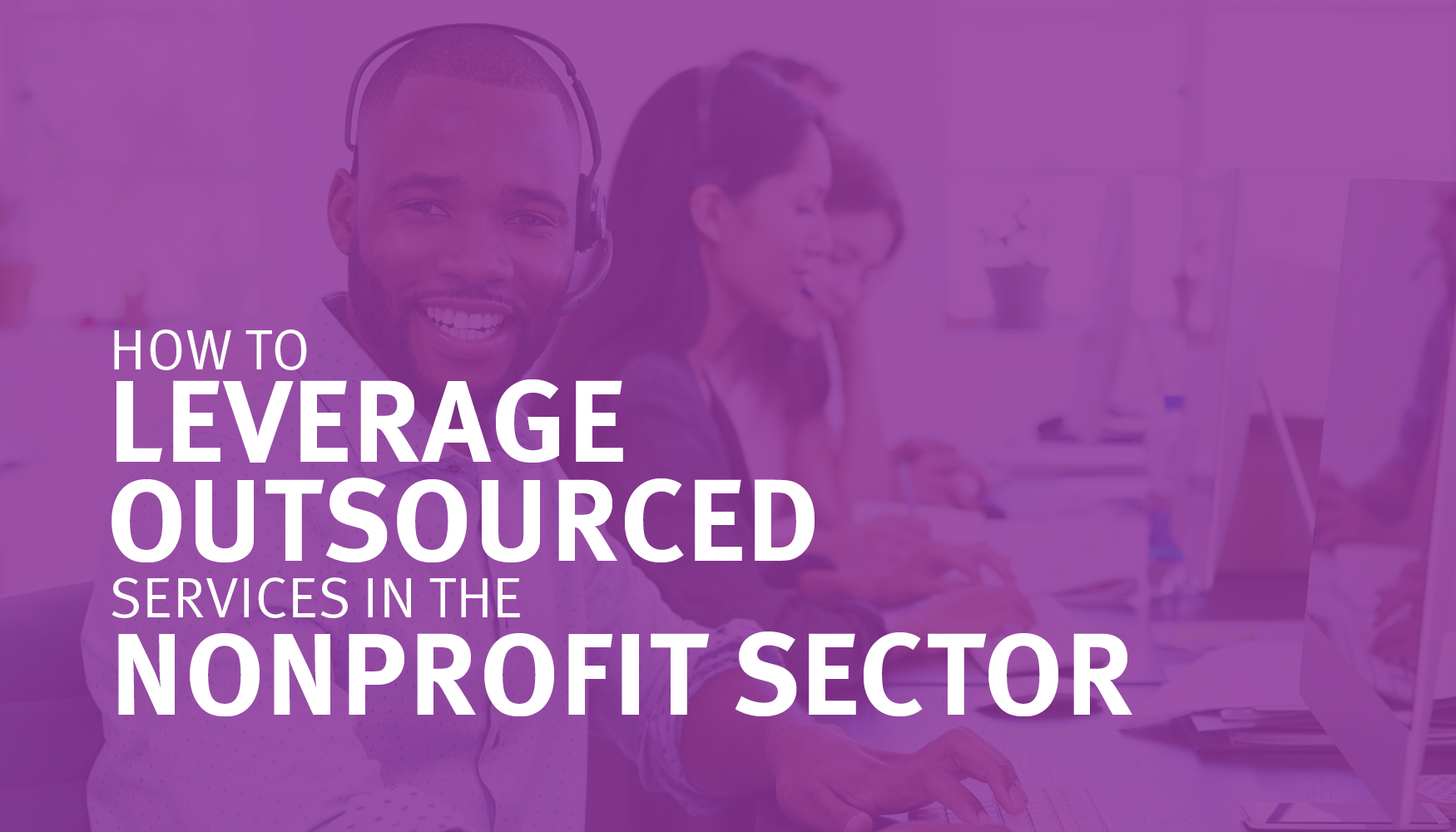If you’ve ever been involved in hiring new employees, you know that recruitment and onboarding are often time-consuming and expensive. This is especially true for nonprofits, which have limited resources to begin with but also run many initiatives that benefit from additional professional expertise.
The best workaround to this situation is to leverage outsourced services that are specifically geared toward nonprofits. According to Jitasa, outsourcing provides your organization with access to expertise and allows you to accomplish important tasks at a much lower cost than hiring a new full-time staff member, so it’s a win-win situation!
In this guide, we’ll discuss the best responsibilities for your nonprofit to consider outsourcing and share tips to help you leverage outsourced services effectively. Let’s dive in!
Best Roles for Nonprofits to Outsource
Generally speaking, the best time to consider outsourcing is when an activity comes up at your nonprofit that your current staff members don’t have the expertise or bandwidth to manage themselves, such as change management support for a technology transition. This project should either be something that has a limited scope that wouldn’t warrant hiring a full-time employee or a situation where your organization doesn’t have room in its budget to bring on someone new.
Let’s look at three top types of outsourced services for nonprofits in more detail: fundraising consulting, marketing and communications, and financial management.
Fundraising Consulting
Many of your organization’s revenue-generating initiatives can benefit from the expertise of a third-party fundraising consultant. These professionals have worked on a wide variety of campaigns, so if situations or issues come up that your nonprofit isn’t sure how to address, they’ve probably seen something similar before and can help you navigate your challenges.
Fundraising consultants can also work with you on strengthening various elements of your initiatives, such as:
- Developing an annual fundraising plan
- Managing leadership transitions
- Creating cases for support
- Planning and executing capital campaigns
- Collecting and analyzing fundraising data
Since different fundraising consultants specialize in different activities, thoroughly research potential partners to ensure the individual or firm you partner with provides the services you need.
Marketing & Communications
It’s no secret that multi-channel marketing maximizes your nonprofit’s reach. However, designing and distributing various promotional materials can be a lot to manage on your own, especially if your “marketing department” also works on other activities at your organization. This is where outsourced nonprofit marketing consultants come in.While some of these consultants provide generalized services to help with whatever your organization needs most, others specialize in certain areas of nonprofit communications, such as:
- Website design and development. This type of consultant can either help you get your nonprofit’s first website off the ground or redesign your existing website to improve its user experience, accessibility, and depth of content.
- Branding. These consultants will work with your organization to create a logo, choose a color scheme and typography, and standardize your messaging style to make your communications recognizable and memorable for your community.
- Direct mail fundraising. Sending out personalized messages to hundreds of supporters can be overwhelming. Direct mail fundraising experts can assist with everything from segmenting recipient lists to printing and distribution.
- Google Ad Grants management. Although the Google Ad Grant provides your nonprofit with free advertising credits, it takes time and well-developed skills to make the most of these funds. According to Nonprofits Source, a Google Ad Grants manager can help your organization choose the right search terms to target, write compelling ad copy, and ensure your account complies with Google’s regulations for Ad Grant recipients.
Hiring all of these professionals can rack up costs, so only invest in the outsourced marketing services your nonprofit truly needs. For instance, if your organization’s brand is well-established but you’re brand-new to Google Ads, your resources would be better spent on a Google Ad Grants manager than a branding consultant.
Financial Management
Managing your nonprofit’s finances is a complicated task, and doing it properly is critical to maintaining both your organization’s tax-exempt status and your supporters’ trust. To ensure no professional carries this burden alone, you should divide your nonprofit's financial responsibilities among at least three professionals, including a:
- Chief financial officer (CFO). CFOs focus on activities related to financial strategy, such as creating budgets and implementing fiscal policies. While many organizations have a CFO on their executive leadership team, you can outsource this professional’s responsibilities by seeking out fractional nonprofit CFO services.
- Bookkeeper. Your nonprofit bookkeeper takes care of your organization’s everyday financial needs like recording transactions, writing checks, and processing payroll. It’s common to hire someone on a part-time basis or even give the job to a trusted, knowledgeable volunteer if your nonprofit doesn’t currently need a full-time bookkeeper.
- Accountant. Accountants are responsible for a variety of financial analysis and reporting tasks, from reconciling your organization’s bank statements to filing tax forms to preparing for financial audits. When outsourcing this role, make sure to partner with a firm that specializes in the unique process of nonprofit accounting.
Although these three financial professionals have different focus areas, they frequently collaborate, so make sure the individuals you choose work well together. For example, while your CFO will take the lead on budget creation, they’ll rely on data recorded by your bookkeeper as they work. They’ll also likely consult with your accountant to revise the budget before it goes to your board of directors for approval.
Tips for Effective Nonprofit Outsourcing
Now that you know what types of outsourced services your nonprofit could leverage, here are some tips to make the most of your collaborations with these professionals:
- Set clear goals before hiring. Make sure you know what you want out of your partnership so you can choose outsourced services that will help you achieve your goals.
- Do your research. Take note of each candidate’s offerings, read reviews from past clients, and look at examples of their past work if they’re available to ensure they’re able to do what you need them to do and will perform these skills well.
- Fulfill legal obligations. Sign contracts with outsourced professionals agreeing to the terms and conditions of their work with your nonprofit, and determine whether you’ll need to issue 1099s to them to comply with tax regulations.
- Communicate with your outsourced professionals. External firms often work with many clients, so setting clear deadlines and regularly following up with your partners can ensure they get their work to you on time.
Additionally, just as you appreciate your organization’s employees, make sure to regularly express your gratitude for your outsourced partners’ work with thank-you notes, small gifts, or other forms of recognition. Doing so can strengthen your relationship with them and make them more excited to continue working with your nonprofit.
Even if your initial collaboration with an outsourced professional is temporary, these relationships can turn into long-term partnerships when you choose the right services and take the necessary steps to make the most of your experience working together. Then, when another situation comes up that can benefit from outside expertise, you can revisit your existing relationships rather than starting from scratch every time.



Comments
Questions or comments? Join the conversation!